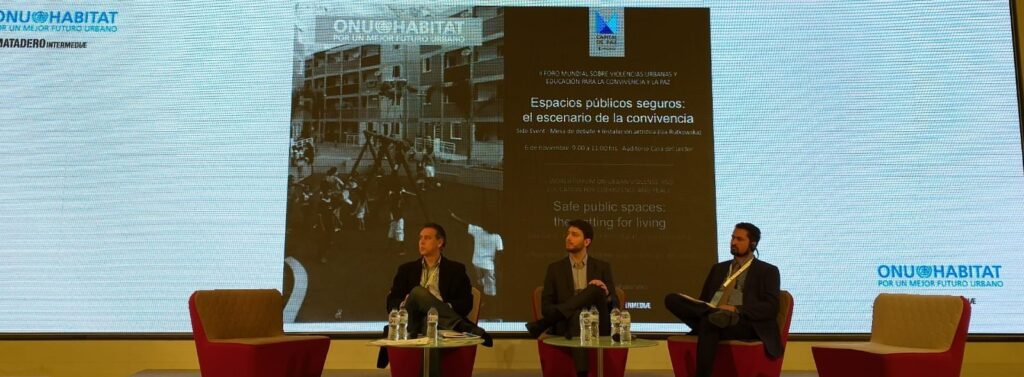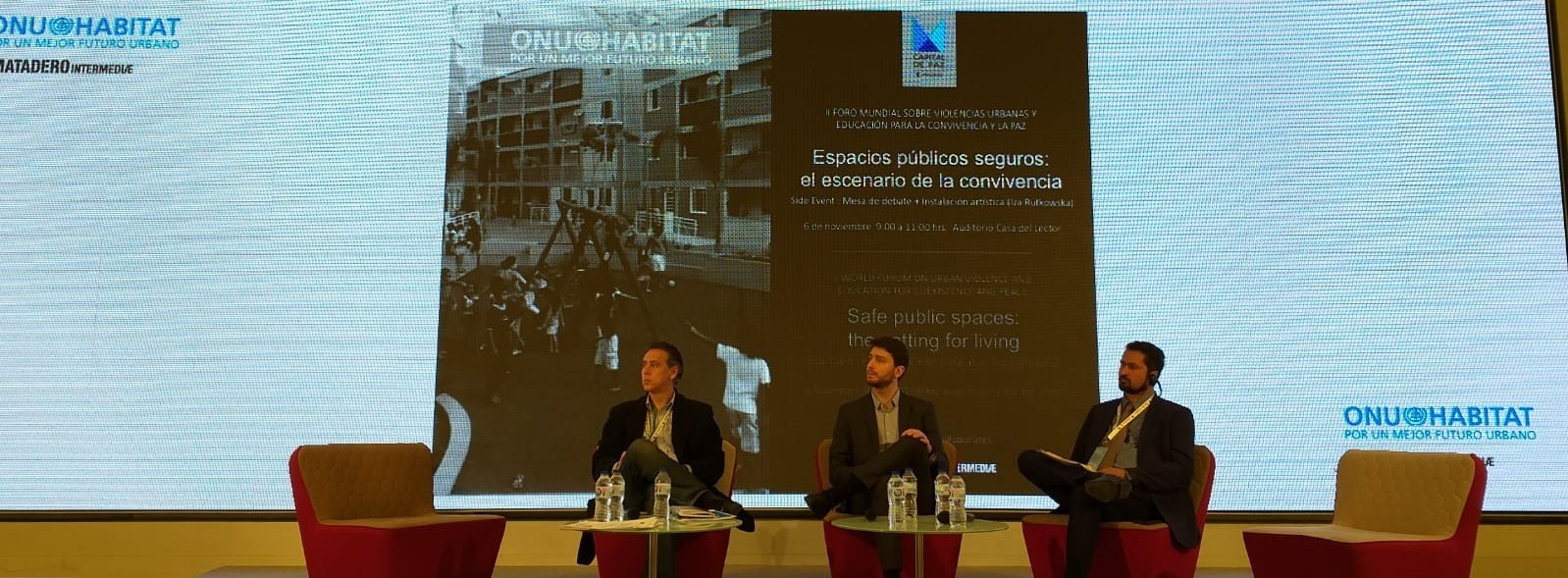
Madrid, Spain, November 2018 – Efus and the Spanish Forum (FEPSU) took part in the second “World Forum on Urban Violence and Education in Cohabitation and Peace”, organised and hosted by the city of Madrid, on 5-8 November. This event has become an occasion for local authorities, researchers, artists and international organisations to meet and share, and Efus and the Spanish Forum have taken the opportunity of this conference to open a space for dialogue on how to prevent violence in our cities.
The event – which featured more than 150 plenary sessions, workshops and debates over five days – gathered over 5,000 participants from all over the world, including 300 mayors. As a long-standing player in urban security, Efus was invited by the city of Madrid, which sits on the board of the Spanish Forum for Prevention and Urban Security (FEPSU), and by the Spanish UN-Habitat delegation, which was a partner in the event.
> The protection of public spaces and the feeling of security
The Spanish section of UN-Habitat organised a session on the different approaches to crime prevention in public spaces and invited Efus to speak on the topic of violence in urban public spaces. In the presence of an international panel moderated by Juma Assiago, Coordinator of UN-Habitat’s Safer Cities programme, Efus presented the recommendations of the “Security, Democracy and Cities” Manifesto on the topic of the management of public spaces, as well as the work conducted by the national forums in France (on the topic of public peace and issues such as non-regulated car repairs in the streets), Germany (on the protection of public spaces from terrorist threats), and Belgium (on citizen participation), the latter together with Veerle Berx, Director of Brussels’ crime prevention agency, BRAVVO.
The discussion then moved to two key questions. The first is the risk of over-securing and “bunkerize” public spaces when they are precisely supposed to be welcoming and open to all citizens. The second is the feeling of security of the population and the real, desirable level of security. Indeed, adopting extra measures to protect public spaces can actually create a feeling of security among the population, which can find itself excluded from such spaces.
> The co-production of security and citizen participation
In partnership with the city of Madrid, FEPSU organised a workshop on the co-production of security and crime prevention policies, with a focus on existing modes and models for citizen participation.
Introduced by the Mayor of Barcelona, Ada Colau, the session comprised a part dedicated to the challenges of citizen participations, its benefits and difficulties, and another during which speakers presented local experiences of co-production of security in public spaces.
Several representatives of Efus members contributed their knowledge and experience: Veerle Berx (Brussels, BE), José Luis Carque (Castellón, ES), Joan Subirats (Barcelona, ES) as well as representatives of a number of partner universities and organisations, such as Ufuq, a German association specialised in multiculturalism and religious diversity, the Centre for Crime and Justice Studies, a British non-profit organisation working on the justice system, and REACH Edmonton, a network of Canadian cities specialised in crime prevention.
Several areas of work were identified, such as the diversity of stakeholders that would be involved in such co-production of security, and the fact that citizen participation should not be limited to implementation but also include reflection upstream and the analysis of results downstream.
> An exhibition stand to present the network and recent activities
Efus and FEPSU had a common exhibition stand in the dedicated space in the conference venue, where they presented their approach and activities, as well as the European projects in which Efus has been working of late on topics such as the prevention of radicalisation and of discriminatory violence, and the use of technology for urban security, namely Solidify, PRACTICIES, MEDI@4SEC, Just and PREPARE.
Many conference-goers visited the stand and expressed a lot of interest in Efus’ approach and its current projects. Representing Efus, Martí Navarro Regàs, Programme Manager, had numerous contacts and explored avenues for future cooperation and partnerships with European and international organisations, in particular from Latin America.





